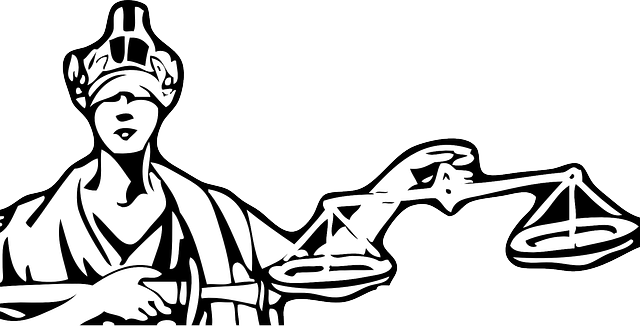In the UK legal system, accurate Court Documents UK translation services are crucial for fairness and consistency. These professional services adhere to strict Ministry of Justice guidelines, master legal jargon, and ensure translated documents convey both meaning and intent. The meticulous process involves qualified linguists, quality assurance checks, peer review, and certification by licensed translators. Choosing the right service requires reputation, experience, and native-speaker proofreading to maintain accuracy and integrity in legal cases. Advanced technology, including AI algorithms, enhances efficiency and accessibility in a diverse language landscape, ensuring non-English speakers can fully participate in legal processes.
Professional court document translation in the UK is a critical component of ensuring legal proceedings are accessible and admissible. With a growing number of international cases, understanding the nuances of UK legal requirements for translation accuracy becomes paramount. This article explores various aspects of court document translation services, from the types of documents needing professional handling to choosing the right service and leveraging technology for improved efficiency. By delving into these key areas, we aim to provide a comprehensive guide for those navigating the complexities of UK court document translation.
- Understanding Court Document Translation in the UK
- The Legal Requirements for Accurate Translations
- Types of Court Documents Needing Professional Translation
- The Process: From Source Text to Certified Translation
- Choosing the Right Translation Service for Your Case
- Ensuring Quality and Accuracy in Legal Translation
- The Role of Translators in Complex Legal Cases
- Technology's Impact on Court Document Translation Services
- Common Challenges and Best Practices in UK Legal Translation
Understanding Court Document Translation in the UK

Court document translation in the UK is a specialised service that plays a crucial role in ensuring accessibility and accuracy in legal proceedings. With an increasing number of cross-border cases, professional court document translation services have become indispensable. These services cater to the unique requirements of legal documents, including contracts, warrants, and judgments, by providing precise and culturally sensitive translations.
In the UK, where the language landscape is diverse, accurate translation is essential to prevent misunderstandings and ensure fairness. Reputable translation companies employ qualified linguists who not only possess expertise in legal terminology but also understand the nuances of different languages. This ensures that court documents are translated with precision, maintaining their original intent and meaning. Court document translation services in the UK contribute significantly to facilitating international legal cooperation, ensuring that all parties involved can comprehend and engage effectively in legal processes.
The Legal Requirements for Accurate Translations

When it comes to court documents in the UK, accuracy is paramount. The legal system heavily relies on precise and reliable translations to ensure fairness and consistency. This is where professional court document translation services step in as game changers. They are equipped to handle the unique challenges of translating legal texts, ensuring every nuance and terminology is captured correctly.
These translation services must adhere to strict guidelines and legal requirements set by the UK’s Ministry of Justice. This includes mastering specialized legal jargon and understanding the context within which the documents are used. Accurate translations must convey not just the meaning but also the intent behind each document, as even a minor error could have significant consequences in a court of law.
Types of Court Documents Needing Professional Translation

In the intricate world of legal proceedings, clarity and precision are paramount. Professional Court Documents UK translation services play a vital role in ensuring that every document is accurately interpreted and conveyed, bridging the gap between languages and jurisdictions. These services cater to a diverse range of court papers, from simple affidavits to complex legal briefs, each requiring a nuanced understanding of both the language and legal terminology.
The need for professional translation arises from the specialized nature of court documents. Legal jargon, technical terms, and cultural nuances can significantly impact the interpretation. Therefore, only qualified translators with expertise in legal matters should handle such documents. This ensures that critical information is conveyed accurately, avoiding potential misinterpretations that could have serious consequences within a legal framework.
The Process: From Source Text to Certified Translation

The process of obtaining professional court document translations in the UK involves several critical steps to ensure accuracy and legal validity. It begins with the source text, which could be a judicial ruling, contract, or any other legal documentation. Specialized translation services employ qualified linguists who not only possess expertise in law but also fluent proficiency in both the source and target languages.
These translators meticulously review the document, considering its complexity and legal nuances. They then produce an initial draft, ensuring every term and phrase is accurately translated while preserving the original intent. After quality assurance checks, including a peer review by another expert translator, the translation is finalized. The completed document is then certified, often by a licensed professional translator or an approved translation agency, to guarantee its authenticity and legal admissibility in UK courts.
Choosing the Right Translation Service for Your Case

Choosing the right court document translation service is a critical step in ensuring the accuracy and integrity of your legal case. In the UK, where language diversity exists alongside a robust legal system, professional translation services play an indispensable role. Look for providers who specialize in legal translations, as they will have the expertise and knowledge to handle the nuances of court documents.
Reputation and experience matter; opt for established companies with a proven track record. Check their client testimonials and case studies to gauge their proficiency in handling complex legal texts. Remember, when it comes to court documents, precision is paramount, so select a service that offers not just translation but also proofreading by native speakers to guarantee error-free documentation.
Ensuring Quality and Accuracy in Legal Translation

When it comes to court documents UK translation services, quality and accuracy are paramount. Legal translations require a deep understanding of both the source language and legal terminology, as well as adherence to strict interpretation standards. Reputable translation services employ professional translators who possess expertise in legal fields, ensuring that every term is rendered precisely and contextually appropriate.
Moreover, advanced technology plays a crucial role in maintaining accuracy. Professional translation software and memory tools help translators maintain consistency throughout the document while minimizing errors. Additionally, peer review processes where another translator checks the work for quality and accuracy further enhance the reliability of the final translated court documents.
The Role of Translators in Complex Legal Cases

In complex legal cases, the role of translators is invaluable. They facilitate effective communication by converting court documents from one language to another, ensuring accuracy and nuance are preserved. This is particularly crucial in the UK, where a diverse range of languages is spoken, and legal proceedings often involve non-English speakers. Professional UK court document translation services play a vital role in ensuring fairness and accessibility within the justice system.
Translators must have a deep understanding of both the source and target languages, as well as legal terminology specific to each jurisdiction. They navigate intricate linguistic and cultural nuances, safeguarding the integrity of evidence and testimony. By providing precise translations, these professionals enable individuals from diverse language backgrounds to participate fully in legal processes, ensuring their rights are protected and every word carries weight.
Technology's Impact on Court Document Translation Services

In today’s digital era, technology has fundamentally transformed how court document translation services operate in the UK. Advanced machine translation tools and artificial intelligence algorithms now play a pivotal role, enabling faster and more accurate translations than ever before. These innovations have revolutionised the way legal professionals work with court documents, streamlining processes that were once cumbersome and time-consuming.
For instance, automated translation software can quickly analyse complex legal jargon, ensuring precise interpretations across multiple languages. This not only enhances efficiency but also reduces potential errors. Moreover, these technologies allow for real-time collaboration, enabling legal teams to access and edit translations from anywhere at any time. As a result, court document translation services in the UK are becoming increasingly accessible, cost-effective, and reliable, meeting the demands of a modern, digital legal landscape.
Common Challenges and Best Practices in UK Legal Translation

When it comes to court documents UK translation services, navigating legal terminology and cultural nuances presents several challenges. Accurate rendering demands deep understanding of both the language and legal framework specific to the United Kingdom. Misinterpretations can lead to serious consequences, including miscommunication between parties, delays in proceedings, and even miscarriages of justice.
Best practices in UK legal translation address these challenges through meticulous research, consultation with legal experts, and adherence to industry standards. Utilizing qualified translators who are native speakers and have specialized legal training is paramount. Employing consistent terminology and formats ensures clarity and reduces ambiguity. Additionally, leveraging advanced technology for machine translation and quality assurance checks enhances efficiency while maintaining precision.
When navigating the complex landscape of UK court document translation, choosing a reputable translation service is paramount. By understanding the legal requirements, types of documents involved, and the process from source text to certified translations, you can ensure accuracy and quality. Remember that professional translators play a vital role in complex cases, and leveraging technology enhances efficiency while addressing common challenges. In today’s digital era, reliable court document translation services are indispensable for successful outcomes in UK legal proceedings.
